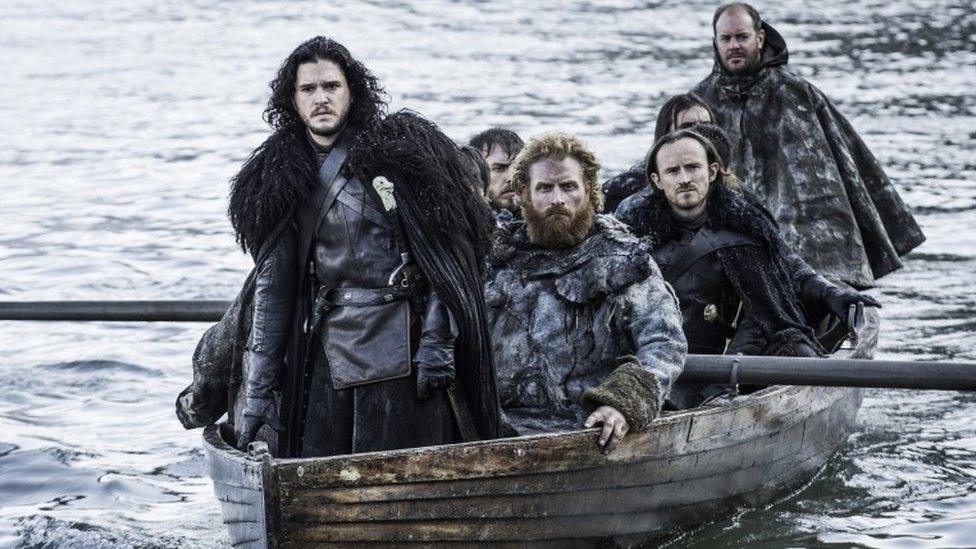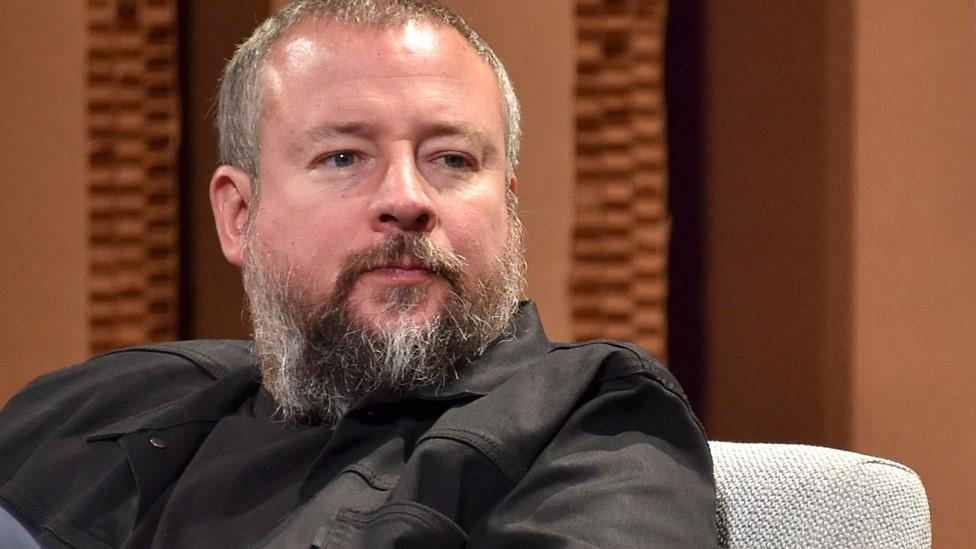Time Warner shares jump on AT&T bid rumour
- Published

Revenue from HBO, which shows Game of Thrones, contributes about 18% of Time Warner's total revenue.
Shares in Time Warner, the company behind HBO, CNN and Warner Bros, have raced ahead for a second day on fresh reports of a tie-up with AT&T.
The Wall Street Journal reported on Friday that AT&T could announce this weekend a deal to buy Time Warner.
On Thursday, Bloomberg reported that the telecoms and entertainment giants had discussed business strategies, including a possible takeover.
With Time Warner worth $73bn (£60bn), it would be the biggest this year.
Time Warner shares closed up almost 8% to a near 15-year high, having gained about 5% on Thursday. AT&T shares lost 3%.
Other media company shares, including Discovery, AMC, Netflix and CBS, rose as investors speculated that a deal could spark a fresh wave of takeovers and mergers among media and technology companies.
AT&T, which has a market value of about $238bn, has already made moves to turn itself into a media powerhouse, buying satellite TV provider DirecTV last year for $48.5bn.
Time Warner chief executive Jeff Bewkes has, however, resisted selling in the past. The company rejected an $80bn offer from Twenty-First Century Fox Inc in 2014. Last night, Fox reportedly ruled itself of any plans to renew its interest in Time Warner.
A deal would give AT&T access to a major producer of content as it seeks to diversify away from its core telecoms business. Rival Verizon is currently in negotiations to buy Yahoo and has already bought AOL, owner of Huffington Post.
Some analysts, however, question whether AT&T needs to mount a complete takeover of Time Warner.
Cowen and Co analyst Doug Creutz said: "What does it get them that they can't get by licensing Time Warner content and at a much cheaper price than buying the whole company?"
He said it was unclear what savings could be gained "from stapling distribution and content together. It's been tried. It never works".
- Published25 August 2016

- Published3 August 2016